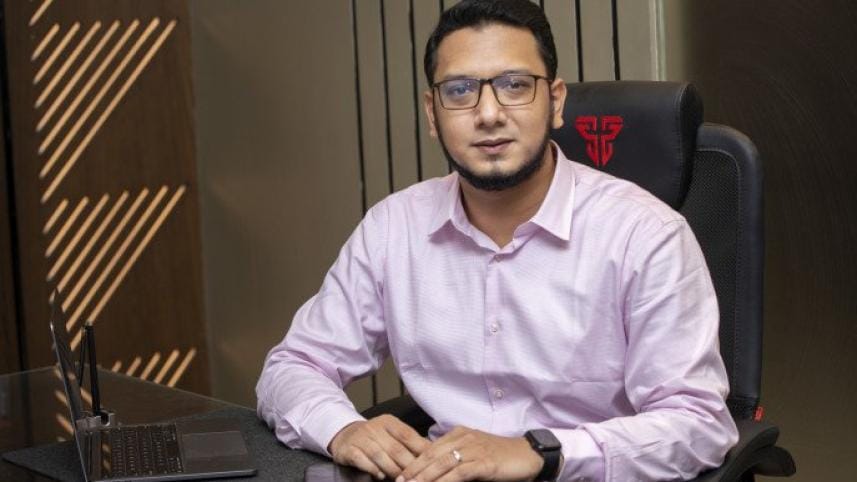Menstrual dignity through markets: A safe path for underserved women

Tahmid K. Chowdhury
CEO
Safepad Bangladesh
The Daily Star (TDS): How has Safepad's innovation in reusable menstrual hygiene products improved health and dignity for women in remote and marginalised communities?
Tahmid K. Chowdhury (TKC): We have developed two main product verticals. The first is our reusable pads, designed for women from all walks of life. Each Safepad is embedded with antimicrobial technology that eliminates harmful bacteria and fungi, helping women enjoy an infection-free period with confidence. The second is our ocean plastic upcycled range, which turns recovered plastic waste into safe, comfortable menstrual products. Beyond standard pads, we have reusable post-partum pads for new mothers, labia pads for specialised needs, and breast pads to support breastfeeding women. Some of these are yet to be introduced in Bangladesh but they are part of our broader vision: ensuring no woman has to choose between her health, her dignity, and the planet's wellbeing.
TDS: What strategies have been most effective in reaching hard-to-access markets, and how do you adapt these approaches across regions?
TKC: Our delivery strategy relies on a network of partners to ensure Safepad reaches every doorstep within 72 hours. We also adapt outreach by working closely with local women entrepreneurs, community health workers, and schools. In flood-prone areas, our teams use boats to navigate waterways, while in more conservative regions we create safe, women-only spaces to encourage open dialogue.
TDS: What role does feedback from users play in shaping product design and delivery models, particularly regarding comfort, affordability, and trust?
TKC: Women have guided us on what works and what does not, and we have adapted accordingly. For example, we now offer two SKUs: a regular pack with four pads and an economy pack with two. The economy pack was introduced on popular demand, enabling users to try Safepad at a lower price before committing to a larger purchase.
Based on feedback, we integrated a black biodegradable zipper bag to store pads. Durable and water resistant, it protects the pads even if paper packets wear out from splashes while showering or handling. Many users also requested payment flexibility, which we incorporated into our sales models.
TDS: How has iDE's support influenced your ability to scale operations and build awareness around menstrual hygiene and reproductive health?
TKC: iDE connected us with new partners, expanded our reach into untapped regions, and provided platforms for large-scale awareness campaigns in schools and communities. Their market-based approach aligned with ours. Instead of distributing products for free, we worked together to create sustainable distribution channels that empower women to earn an income while addressing a critical health need.
TDS: What future collaborations or innovations are you exploring to deepen your social impact and reach new segments?
TKC: We are working to integrate menstrual health education more deeply into schools so access to products goes hand in hand with knowledge and confidence. Expanding into climate-vulnerable areas is also a priority, as supply chain disruptions there can leave women without essentials. On the innovation side, we are developing pads that are lighter, faster drying, and more affordable, while continuing to expand our reusable product categories for different life stages. Our goal is to make responsible consumption the norm, ensuring menstrual products do not add to the mountain of waste we are already battling.
This content has been published under 'Catalyzing Markets' - a media campaign jointly initiated by iDE and The Daily Star. This interview is conducted by Md. Zahidur Rabbi.
iDE, a global nonprofit organisation in 12 countries since 1984, drives poverty reduction through market-driven solutions in Bangladesh, scaling agriculture, WASH, climate resilience, clean energy, and women's empowerment.




 For all latest news, follow The Daily Star's Google News channel.
For all latest news, follow The Daily Star's Google News channel.
Comments